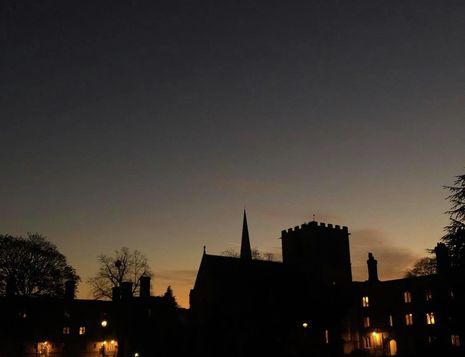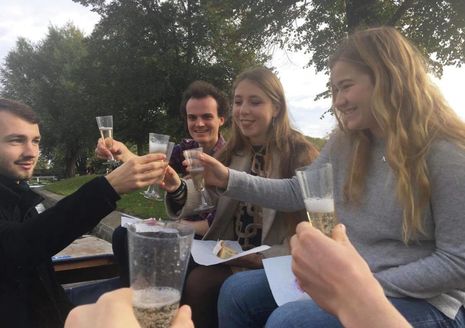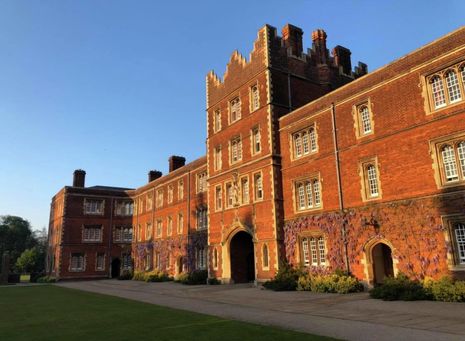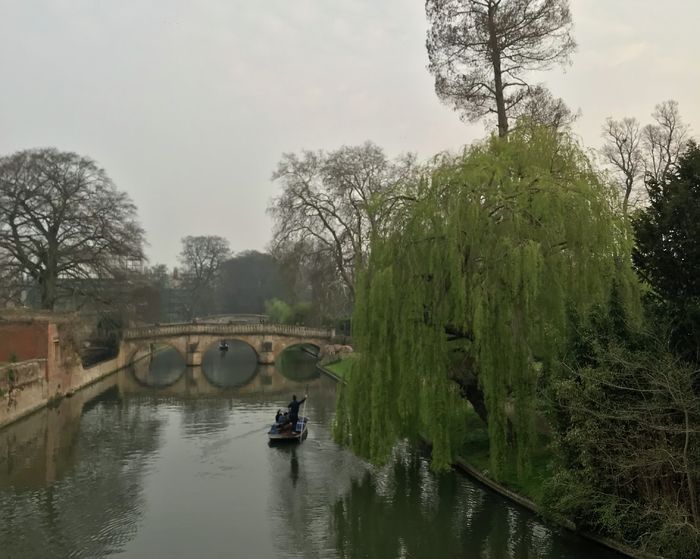Foresight is a wonderful thing, but hindsight is better
Grace Copeland writes on her last night in Cambridge and maintaining perspective on the things that cannot be changed

William Blake’s judgement that ‘hindsight is a wonderful thing, but foresight is better’ encapsulates a frustration that I think we are all experiencing during these strange and sad times. I think it is part of the human condition: a frustration with the maddening mechanism of time and its persistence in denying us the ability to know things that might enable us to live in a way we deem to be more fulfilling. We resent time for leaving us scattered in the liminality between the spectacular certainties of birth and death, to live as gracefully as we can, and to somehow spin our uncertainties into elegance and depth as we go. The lack of foresight granted to us by the universe is an infuriating element of our existence. We are, however, given hindsight at every twist and turn, and perhaps it’s time to recognise the beauty of this.
As I lay in bed on my last night in Cambridge, slightly hazy from an evening of using up all of the spirits we had been intending to save for Easter term, and slightly aching at the thought of imminent goodbyes, I felt an intense need to savour this last night in my room in Jesus College. This was always going to be my last night of Lent term, but now it seemed to have gained a new weight; a fresh red urgency, raw and dangerous, like an open wound. Earlier that day, we had received an email which had thrown the silencing words “the University has today moved into its “red” phase in response to the Coronavirus pandemic” into the nervous noise of 23,000 Cambridge students. Suddenly, we had to reinvent the meaning of this last evening, with no tools but the din of the glamour, the tribulation and the love the past eight weeks had given us, and the void which now yawned before us all.

Since then, I have found I was not alone in this feeling. There is a sense that the students who have been robbed of their first, second, or indeed their final Easter term in Cambridge feel that, had they known this term would end the way it did, they would have made different choices and handled each second more appreciatively; almost prayerfully. This feeling is a time-bending frustration, a bright white pain enlisting oceanic forces, calling on an impossible science to put right the things which had not been wrong until now. I think we should feel it for a short while - let it froth and fizz and sting, because it is frustrating. But we mustn’t feel it for too long.
“To have gone through Lent term acting as though it would be our last would have been not to have really gone through last term at all.”
On that Wednesday evening, I found my solace in the words of Shaun Vickers, a dear friend of mine, who was fortunately also awake and just as full of Captain Morgan and incredulity as I was. Oddly, he started talking about Schrödinger’s Cat. Schrödinger’s Cat is a thought experiment concerning quantum physics, which imagines a cat locked inside a chamber, along with a system in which the cat has a fifty percent chance of dying. The at-the-time prevailing quantum theory said that atoms can be considered to be in a combination of states at once, until they are observed, at which point they collapse into one state - and therefore that until an external power (us) observes the cat, it is both alive and dead simultaneously, which is of course, in any logical sense, complete tripe. Schrödinger was saying that the cat is either dead or alive, and whether we observe it or not does not change its state.
What my friend was saying was that it wasn’t of any great significance how I chose to keep what would be my last night in Jesus College for a long time. It didn’t matter, because the universe is as it is, and we cannot make a cat alive or dead by looking into its chamber. In other words, the moment would just be. My agonising over keeping it in a certain way would not change the state of its natural perfection at all. Yes, like in a quantum system, there were multiple permutations of this moment that could have been, but the one that buzzed around me now was the one I would get, whether I devoted this time to consciously marking it or not - and so I may as well just sit back and let it be.

In truth, there is nothing we can do about the fact that this soulless chain of protein, without even a nucleus to its name, is doing damage to everything and everyone. And there is nothing we can do about the fact that Lent term 2020 was what it was. But what we can do is maintain a little perspective, and lend an ear to Schrödinger.
To have gone through Lent term acting as though it would be our last would have been not to have really gone through last term at all. To experience something like a Cambridge term in a deliberate way would be to deny the scorching madness, the almost celestial complexity, and the chaotic beauty which come guaranteed. Nobody could possibly do justice to an experience like that simply by keeping it in a certain way. And so, in this instance, I think William Blake was wrong when he said that ‘hindsight is a wonderful thing, but foresight is better’, because, no matter what sinister circumstances the universe tangles us up in, what we have done and how we have done it will remain for us to look back on.
I think we should all be smiling about the power in that fact; the immovable grace of it, the life in its permanence. These are difficult times, but we are owed nothing by this conundrum world. Let this be a time to reconnect with the good we have managed to tease from it. I promise you, the way you did last term was the only way there was to do it. And you did it sublimely.
 News / Colleges charge different rents for the same Castle Street accommodation2 March 2026
News / Colleges charge different rents for the same Castle Street accommodation2 March 2026 News / King’s hosts open iftar for Ramadan3 March 2026
News / King’s hosts open iftar for Ramadan3 March 2026 Theatre / Lunatics and leisure centres 4 March 2026
Theatre / Lunatics and leisure centres 4 March 2026 News / Angela Merkel among Cambridge honorary degree nominees27 February 2026
News / Angela Merkel among Cambridge honorary degree nominees27 February 2026 News / News in Brief: waterworks, wine woes, and workplace wins 1 March 2026
News / News in Brief: waterworks, wine woes, and workplace wins 1 March 2026








